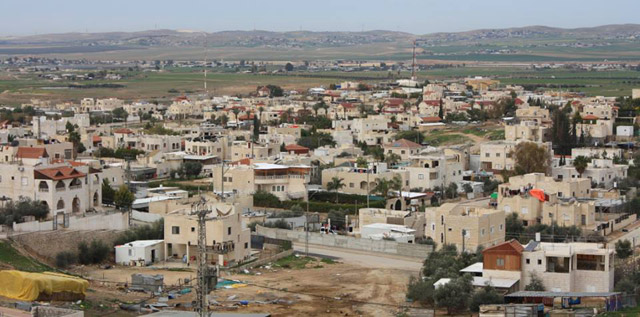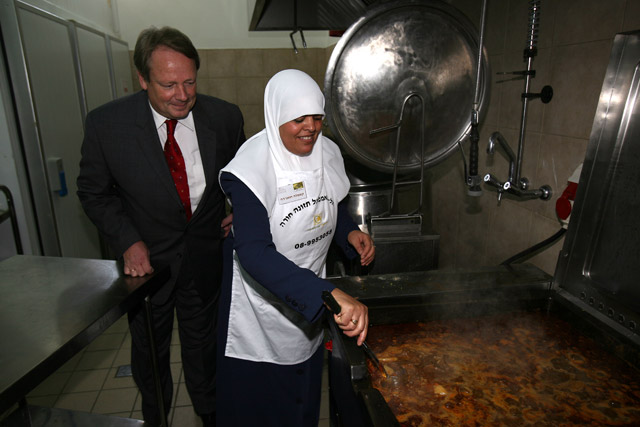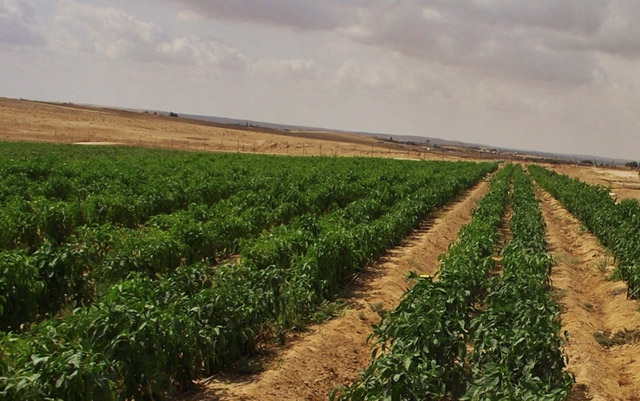Dr. Makhmud El-Nabari, who holds degrees in Chemistry and Environmental Studies, was 34 years old when he was elected Chairman of the Local Council of Hura in the Negev desert - a Bedouin town with a population of 15,000. With six patents to his name for developing treatments for Alzheimer's disease and brain cancer, he turned to the field of local government. While 52 municipal council heads were replaced in the last elections, El-Nabari was re-elected to govern Hura for the third time in a row.
"It is true that I worked in a successful pharmaceutical company for more than three years, but in 2004 a number of colleagues convinced me to run for election," said Dr. El-Nabari. "The Hura Council had suffered from poor management, serving the ruling clan rather than the entire community. Its coffers were empty, collecting only 2% of municipal taxes. I wanted to bring about change, but in the beginning it was a shock because I had no experience in politics or in the public sector."
 The Bedouin town of Hura in the NegevCopyright: Hura Local Council
The Bedouin town of Hura in the NegevCopyright: Hura Local CouncilHe promised to serve the entire community and must have done something right, because today the collection rate for water is 96% and for municipal fees - 99% - one of the highest rates in Israel. In recognition for his achievements, Dr. El-Nabari received an award from the Movement for Quality Government in Israel.
What else has he achieved during the past eleven years?
According to Dr. El-Nabari, "We succeeded in changing the failed education system to one of success and excellence. Today Hura has the best education system in the Negev, with 1,800 secondary school students who achieve better results in matriculation exams than all the Arab and Jewish schools. He opened a school for autistic children to serve the Bedouin community, as well as a special school for gifted students from the entire region. Hura today offers education services for 26 Arab towns, and beginning with the next school year, will also provide services for Jewish towns on the development of the desert and the quality of the environment, based on a foreign partnerships project. Enrollment of students from Hura in universities has increased fourfold, and is a source of pride for the entire community."
His accomplishments also extend to the economic sphere, where he developed four models in the town based on available human resources. One is a factory employing Bedouin housewives that provides nutritious meals to schools. Bedouin women are also employed as a special Bezeq Telecom call center set up in a mosque in Hura. Despite competition from China and other third world countries in the textile industry, Hura now produces school uniforms for Israeli pupils formerly imported from abroad. The factory will also begin exporting school uniforms abroad, filling the void in the market left by Syria. He also established an equal partnership with neighboring Kibbutz Lahav, providing employment for 200 residents of Hura who engage in agricultural research and the production of beauty products based on camel's milk.
 Hura catering: Preparing nutritious meals for pupilsCopyright: Hura Local Council
Hura catering: Preparing nutritious meals for pupilsCopyright: Hura Local CouncilAnother project which enjoys international support is the development of a model for living in a sustainable environment such as the Negev desert, where the Bedouins have gained experience and expertise over many years.
Project Wadi Attir
is a groundbreaking initiative of a Bedouin community in the Negev
desert, establishing a model sustainable farm that combines Bedouin
traditional values, know-how and experience with the Sustainability Laboratory's integrated, holistic approach to development, relevant to the local community, to the region, and to other arid zones around the world. In cooperation with 12 leading academic institutions abroad, including MIT,
Dr. El-Nabari plans to present this project at a visitors center to be established alongside the Museum of Bedouin Culture at the
Joe Alon Center for Regional Studies, near Kibbutz Lahav. He hopes to share this experience with Jordan as well, by establishing a sustainability center in its desert.
 The Wadi Attir project: A model sustainable desert communityCopyright: Hura Local Council
The Wadi Attir project: A model sustainable desert communityCopyright: Hura Local CouncilWith over 100 projects currently running, the annual budget of Hura has quadrupled to NIS 500 million ($130 million). What is the secret of his success? Dr. El-Nabari points to strong regional and global partnerships, in addition to donations, high tax collection, and the utilization of government funds. He notes that Hura still faces many challenges, including adapting the Bedouin mentality to embrace modern developments on the local and global levels.